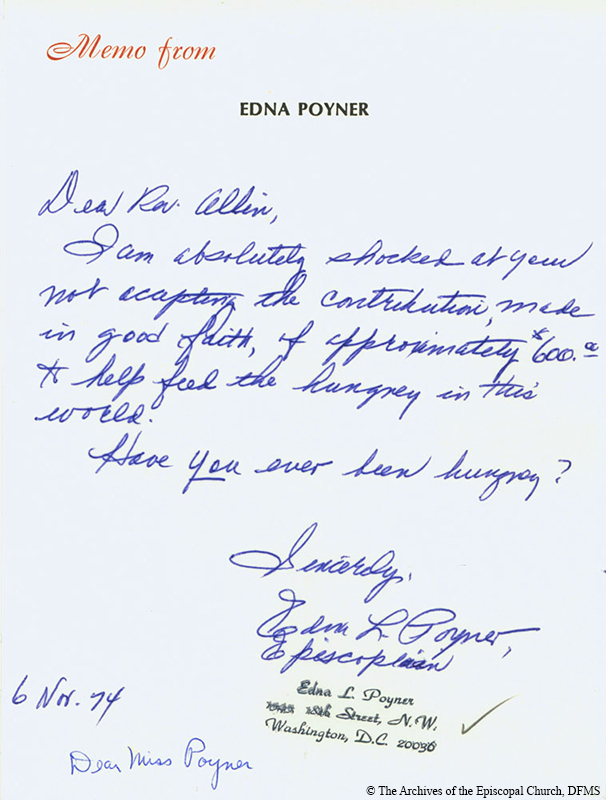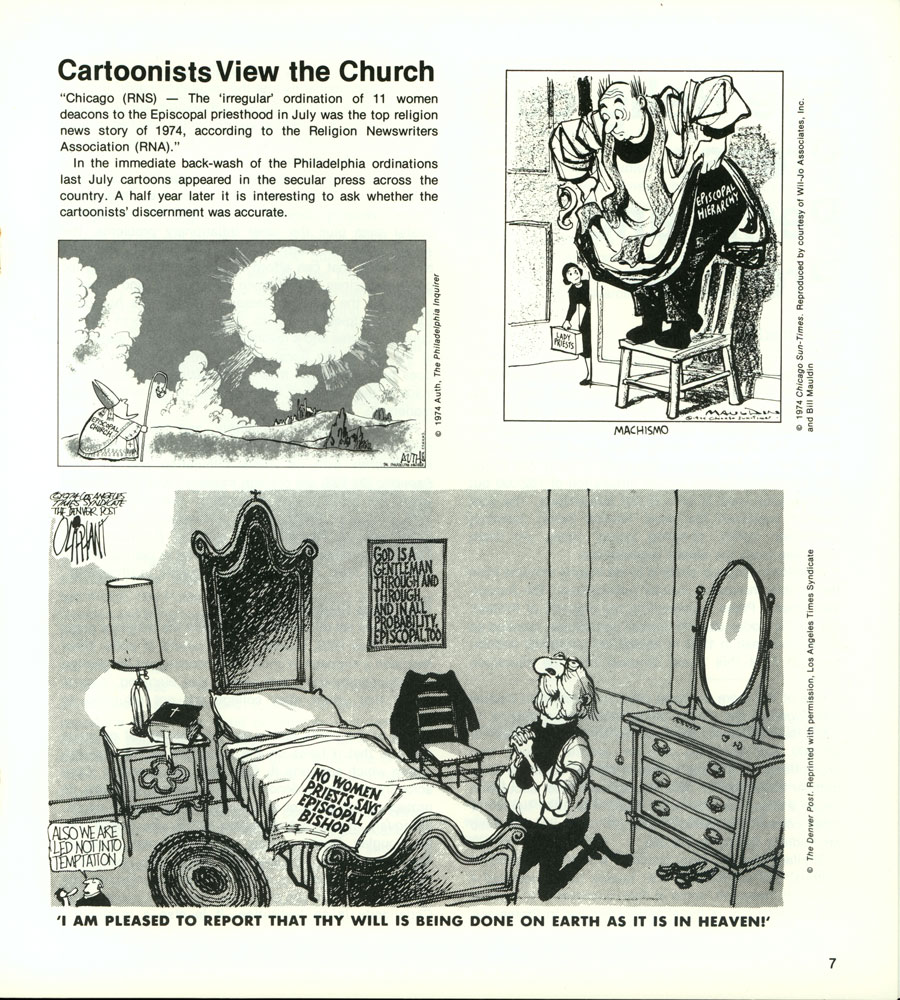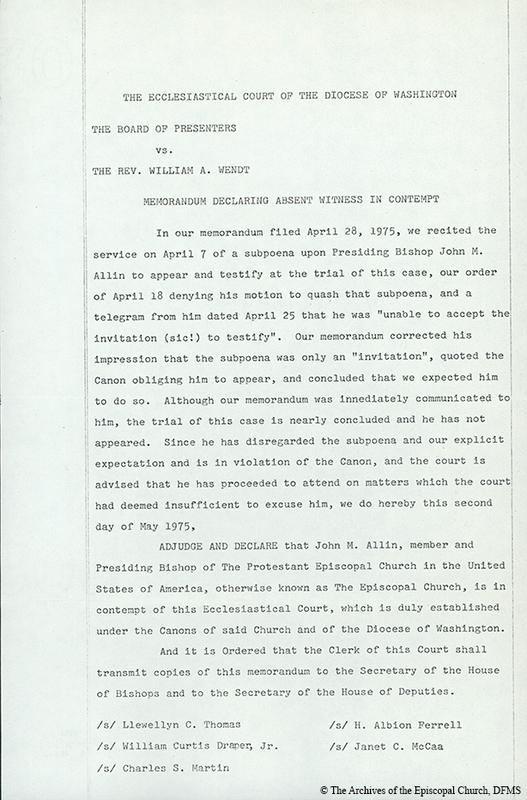Authority in the Aftermath
A 1975 issue of The Witness shows unfavorable cartoons that emerged in secular publications in the aftermath of the Philadelphia ordinations.
“Invalid” Ordinations
On August 15, 1974, the House of Bishops, acting at a special meeting, declared the Philadelphia ordinations “invalid.” It adopted a resolution, which stated that “the necessary conditions for valid ordination to the priesthood were not fulfilled.”44 The vote was 129 to 9 with 8 abstentions. It was argued by many that it would have been more appropriate to deem the ordinations “irregular” than “invalid.” When asked about the House of Bishop’s decision and the language of the resolution, Archbishop of Canterbury Donald Coggan was quoted as saying, “I would say irregular, but only God could say invalid. I would never have said ‘invalid.’”45

A concerned Episcopal Church member writes to Allin, expressing shock at his intital refusal of the donation, November 6, 1974. Allin received many similar letters of crticism for his decision to reject the offering.
Rejected Donation
In October 1974, after the House of Bishops had officially decided the invalidity of the ordinations, three of the Philadelphia 11, Carter Heyward, Alison Cheek and Jeanette Piccard, performed the Eucharist at the Celebration of Women in Ministry at Riverside Methodist Church in New York. The total monies collected as the Offertory at this service was sent by Carter Heyward to Allin as a donation to the Presiding Bishop’s Fund for World Relief. Allin refused the $672 for reasons of conscience and misgivings about why the women had made the donation. He was also concerned that accepting the check would be a sign that he approved of the ordination of women.
Many individuals were very critical of Allin’s decision not to accept the money, since much of his platform as Presiding Bishop was to feed the hungry. His refusal of the check outraged both members and clergy of the Church, many stating that they were saddened, ashamed, and embarrassed by his actions. One church member accused Allin of “petty partisan in-fighting.”46 Another member asked Allin, “Have you ever been hungry?”47 And one concerned member reminded Allin that his very own statements had “rightly pointed out that world hunger and the church’s response is a matter of the highest priority.”48 Ultimately, Allin did accept the donation and the funds were appropriately allocated.
Contempt of Court
The momentous events of the summer of 1974 and the emergence of partisan sides gave rise to a series of difficult encounters that exposed the office of Presiding Bishop as a lightning rod for emerging questions of authority. The scope of the Presiding Bishop’s involvement may have elevated discord rather than allowed processes to evolve. On May 2, 1975, Allin was cited for contempt by a diocesan ecclesiastical court in Washington, D.C. He was asked to testify in the case against the Rev. William Wendt for disobeying his bishop by allowing the Rev. Allison Cheek, one of the Philadelphia 11, to act as an ordained priest. Allin could not testify due to prior engagements and planned travel. It was ultimately decided that the D.C. ecclesiastical court did not have the authority to cite contempt outside of its jurisdiction.



